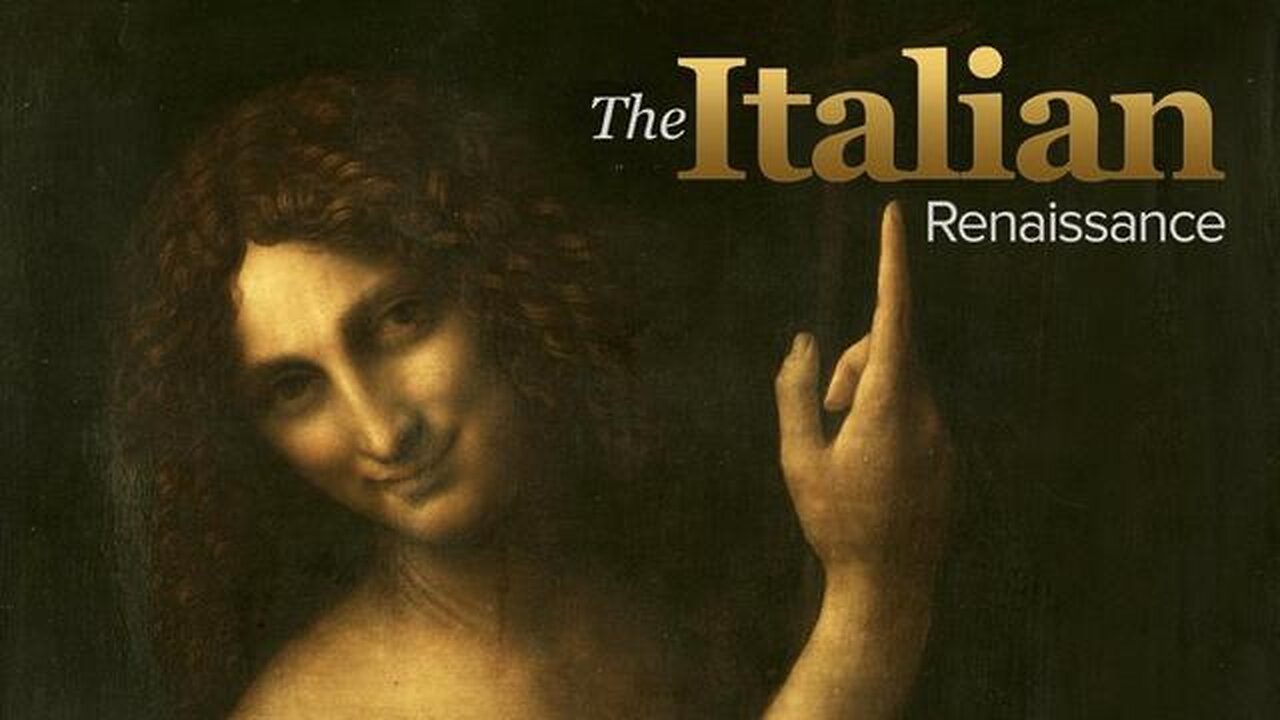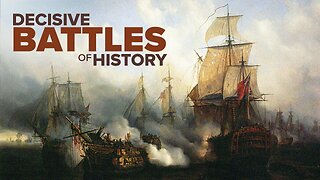Premium Only Content

The Italian Renaissance | Venice - The Most Serene Republic (Lecture 13)
Lecture 13: Venice, the other great republic in the peninsula, is a curious place. It was founded by Romans fleeing the barbarian invasions in the 5th and 6th centuries, seeking safety in the lagoons where the river Po meets the Adriatic. It was, therefore, not a Roman foundation and not originally an episcopal see. Its initial economy was fishing, which soon expanded to local and, eventually, long-distance maritime trade. The calling of the Crusades made Venice enormously rich and permitted the republic to become the most powerful maritime state in Europe and the richest city in the West. The social organization of the city resulted from its origins as well; fiercely independent, the inhabitants knew no prince or bishop but ruled themselves by choosing magistrates, who were seen only as primi inter pares, “first among equals.” At the end of the 7th century (697), the duke (doge in Venetian dialect) emerged as the elected head of state. In 1297, the system was codified in the Serrata (or closure of the Great Council) with the institution of legally defined classes. The Serrata limited membership in the Great Council, the source of political power in Venice, to families who had sat there previously and whose names were recorded in the Golden Book.
Thereafter, Venice was a republic of nobles whose economic and political interests were almost entirely associated with the success of the state. The city also avoided the factional crises of the other Italian states as the Guelf-Ghibelline struggle did not obtain. Moreover, the fear of the impoverished working class in cities, illustrated by the ciompi in Florence, was not present. The industrial workers in Venice were the skilled employees of the Arsenal, building the vast fleets for Mediterranean trade and protection, and the glass workers were equally privileged and well paid. Consequently, Venice was a stable and homogeneous society, divided informally by wealth and occupation.
Primary Source Texts:
D. Chambers, and B. Pullan, eds., Venice: A Documentary History, 1450 to 1630.
Secondary Sources:
D. S. Chambers, The Imperial Age of Venice, 1380–1580.
Robert Finlay, Politics in Renaissance Venice.
Supplementary Reading:
Frederic Lane, Andrea Barbarigo, Merchant of Venice, 1418–1449.
Lecture 14: https://rumble.com/v4xlh0q-the-italian-renaissance-renaissance-venice-lecture-14.html
-
 30:17
30:17
The Great Courses
1 month agoDecisive Battles of World History | 1942 Midway - Four Minutes Change Everything (Lecture 34)
151 -
 49:01
49:01
The Finance Hub
4 hours agoI CAN'T BELIEVE WHAT JUST HAPPENED TO KASH PATEL!
3.77K4 -
 24:05
24:05
Preston Stewart
9 hours ago30,000 Russians A Month
11.3K7 -
 LIVE
LIVE
LFA TV
20 hours agoLFA TV ALL DAY STREAM - WEDNESDAY 7/9/25
1,311 watching -
 1:40:48
1:40:48
vivafrei
7 hours agoRusia-Gate Resurfaces! Epstein Debacled Continues! Live with Rev. Rim Christopher & Benny Johnson
168K60 -
 2:10:46
2:10:46
Pop Culture Crisis
3 hours ago'SUPERMAN' Box Office TROUBLE? 'Harry Potter' Actor Calls You Racist, Sydney Sweeney MID? | Ep. 873
18.1K3 -
 DVR
DVR
LadyDesireeMusic
2 hours ago $1.07 earnedMake Ladies Great Again | Piano Music
15.4K3 -
 LIVE
LIVE
The Rabble Wrangler
1 hour agoThe Rabble Wrangler Returns! Call of Duty Warzone with The Best in the West
43 watching -
 LIVE
LIVE
sophiesnazz
1 hour ago $0.32 earnedPLAYING RANKED l TOP 25000 !socials
21 watching -
 1:09:47
1:09:47
The HotSeat
2 hours agoBiden’s Doc Pleads the FIFTH?! Epstein Lies, Jail Cell Doubts & the Death of TRUTH in America
15.6K10